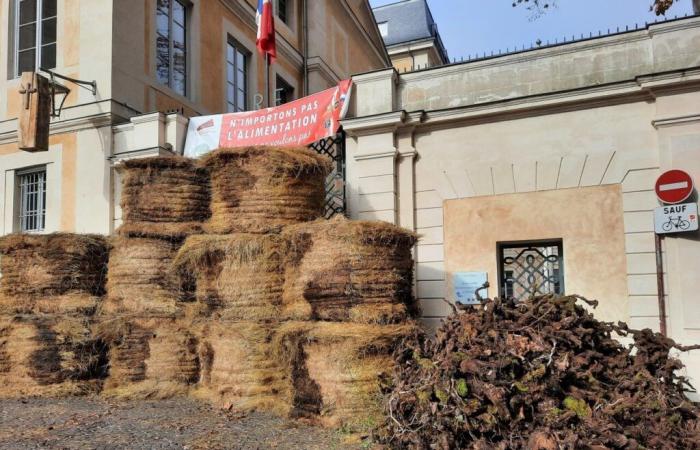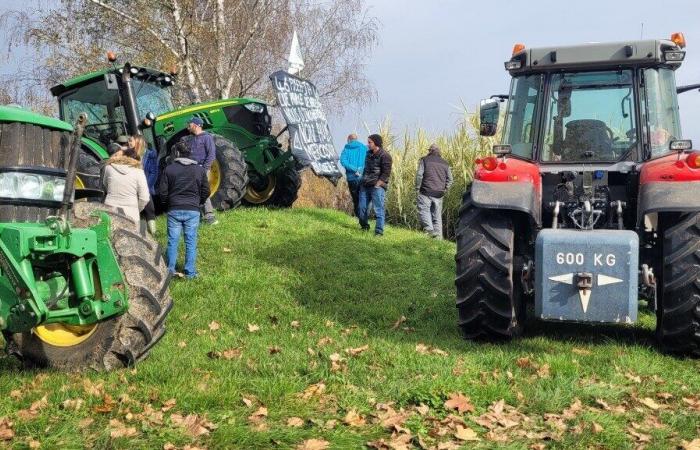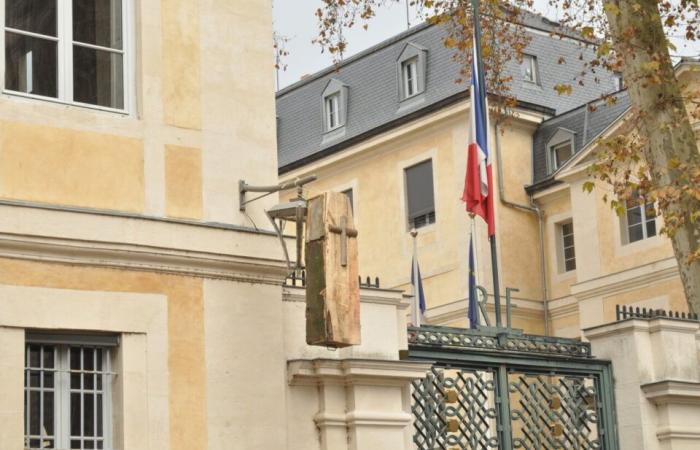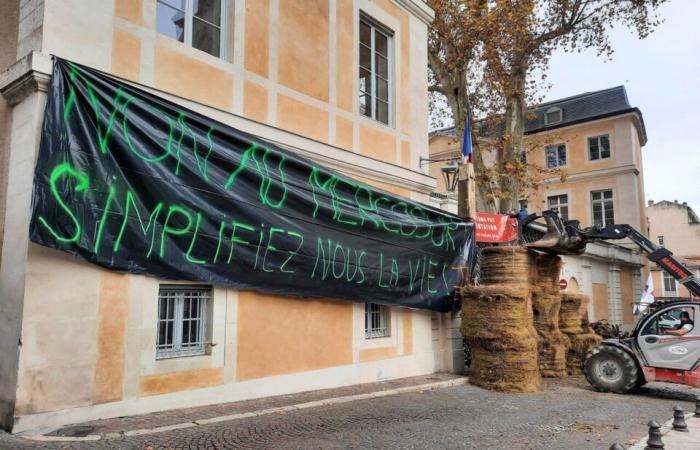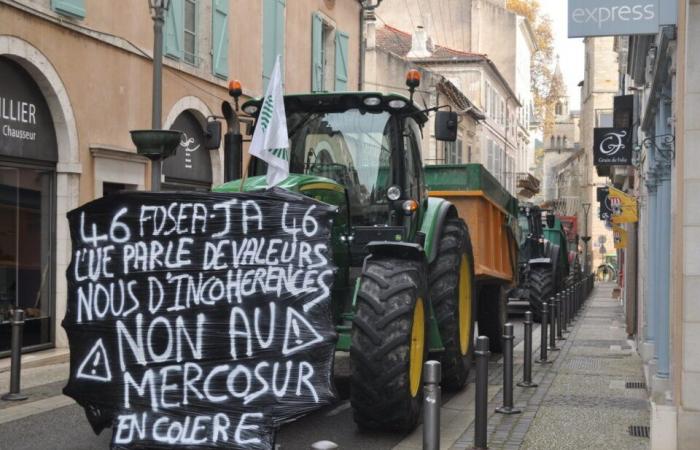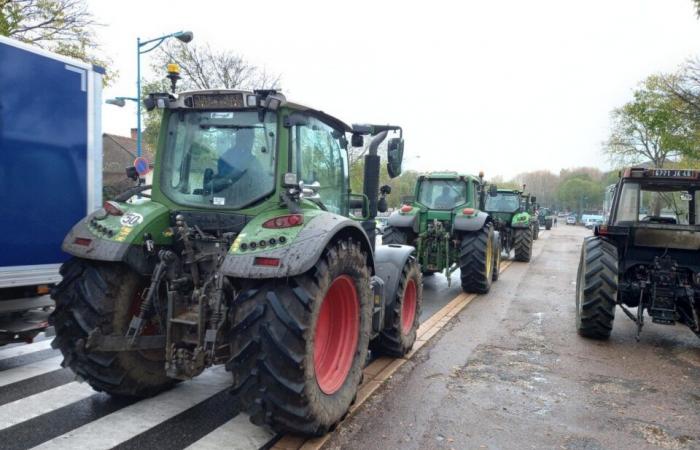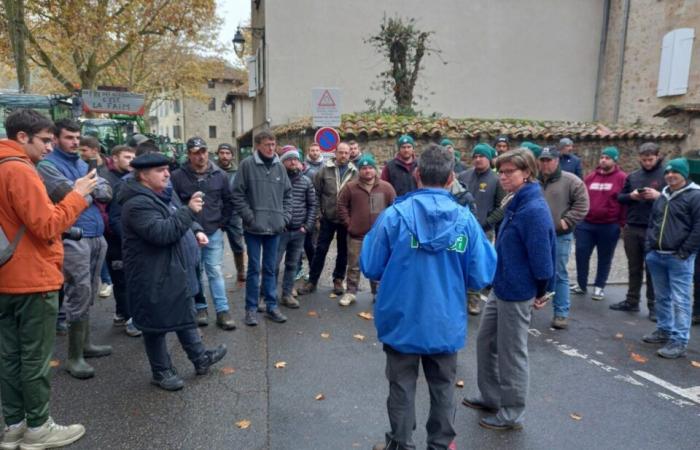Par
Marie-Cécile Itier
Published on
Nov 18, 2024 at 4:09 p.m.
See my news
Follow News Lot
This Monday, November 18, 2024, the farmers of the FDSEA and JA du Lot followed the national movement and demonstrated Cahorsas in Gourdon and to Figeac.
There were around forty tractors parading through the streets of Figeac, while in Cahors, around twenty tractors blocked the main entrance gate to the prefecture in the town center.
Demonstrations at the Cahors roundabouts
In Cahors, the convoy of farmers arrived mid-morning, where around 10:30 a.m., they lit a first large “distress fire” on the roundabout at the southern entrance to the town (roundabout du Montat ).
They continued the path to the Regourd roundabout at the northern entrance to Cahors. There, around twenty tractors with trailers blocked traffic dumping straw for several minutes. They then set it on fire to light a new “fire of distress” and at the same time set off a few firecrackers.
The convoy of tractors then continued on its way to arrive shortly after midday in the city center of Cahors. On Place Chapou in front of the cathedral, around fifty demonstrators first hung a coffin from the gate of the Lot prefecture, before blocking access with around ten bales of hay.
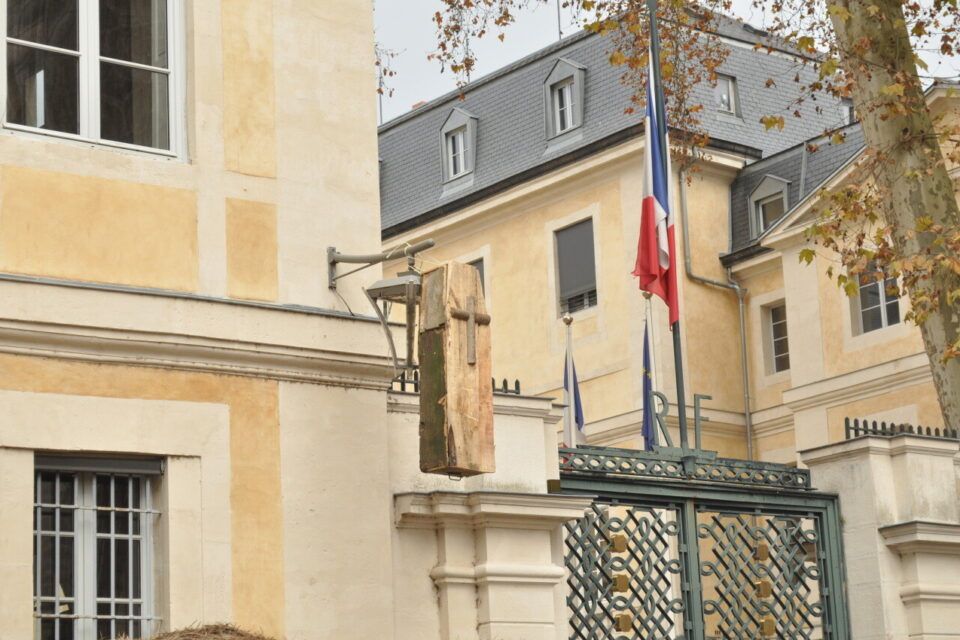
They then dumped a trailer of vine stocks, symbolizing the malaise of the wine industry in the Lot, which began to uproot many plots of vines. In fact, more than 700 ha of vines will be uprooted, mainly in the Lot valley, coupled with concern for the future of wine growers who are going through a deep crisis.
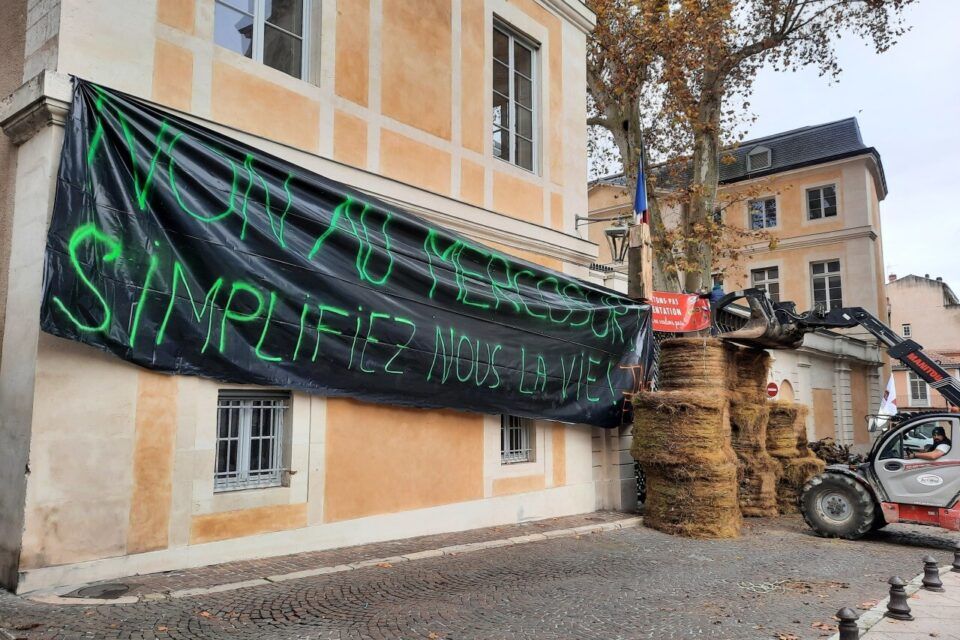
Then they posted a giant banner on the walls of the prefecture: “No to Mercosur, make our lives easier”.
The demonstration took place in a calm and good-natured atmosphere, with the impromptu meeting of the deputy Aurélien Pradié who came to take the pulse of the situation while the farmers launched a barbecue while waiting for a delegation of farmers to be received by the prefect from Lot Claire Raulin.
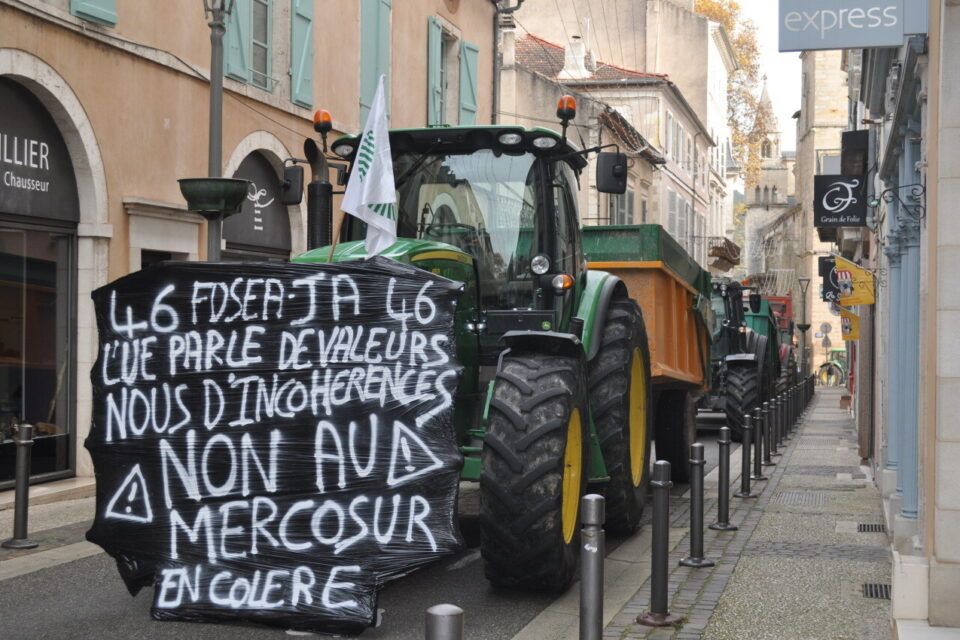
The farmers then planned to leave the area in the middle of the afternoon.
Around forty tractors in Figeac
In Figeac, around forty tractors paraded through the town.
The sub-prefect of Figeac, Anne-Cécile Vialle, came to meet them. Alain Lafragette, farmer in Viazac and vice-president of the Lot Chamber of Agriculture, submitted the grievances to him, before submitting proposals. “We are not against trade between nations. We are ok to import, but we must play on equal terms, he said, referring to Mercosur. In everything that was undertaken in January, there was progress (conservation of ICT*, loan guarantees), but we still have the impression that we are being erased from part of the proposals. Our fight must also be that of our fellow citizens.”
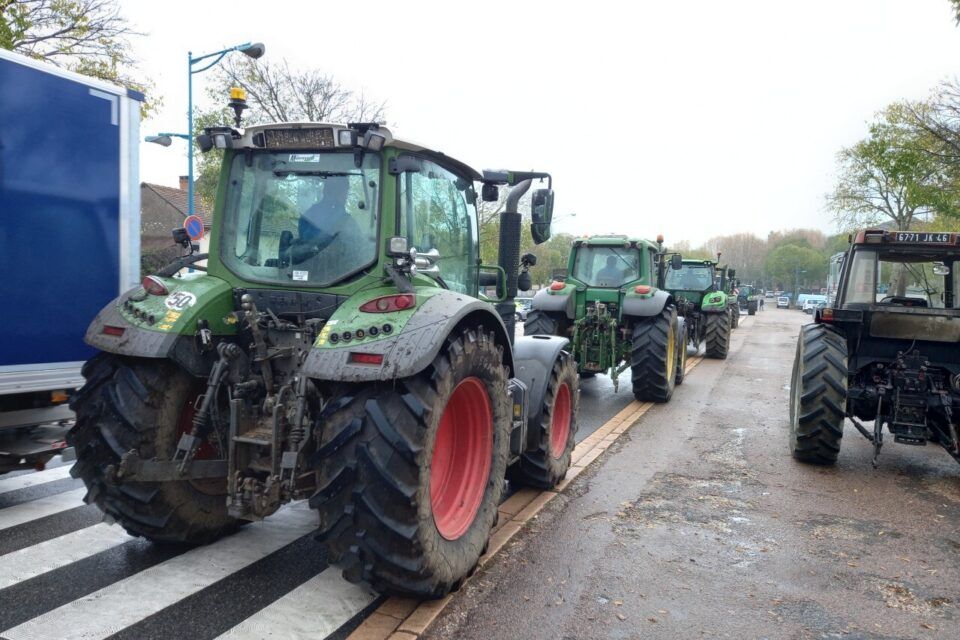
For his part, Clément Roquié, sheep breeder in Durbans, president of the JA du Lot added: “We import what is forbidden to us in France, with prices that defy all competition. This is the first mobilization since January. A year ago today, we turned over the city entrance signs. We made progress at 30% of what we asked for. 70% of promises remain. We are satisfied to see the mobilization.”
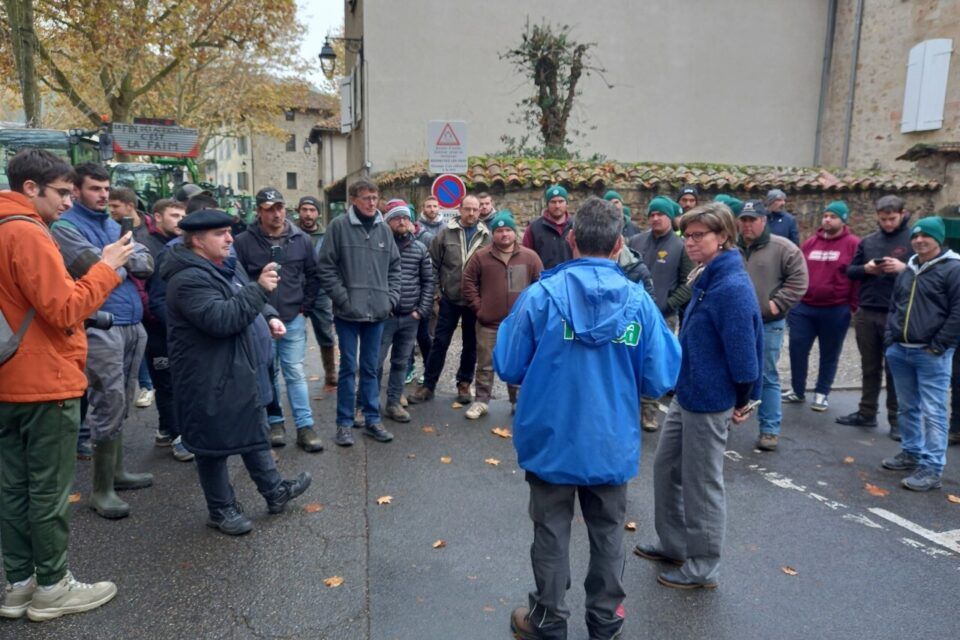
“We will continue”
In Cahors, Stéphane Pons, president of the FDSEA of Lot, recalled the demands. “We know, first of all there are the Mercosur agreements. France is unanimous on this subject, but it is not France which is signing, it is Europe, and there is no unanimity against these agreements at European level. We absolutely don’t want it.” He also recalled the farmers' request for cash flow aid “even if the things announced are going in the right direction, we need cash flow aid, particularly in the most difficult sectors such as viticulture or the nuts in the Lot,” insisted Stéphane Pons. “We must also continue to work on administrative simplification. We are not anti-norms, we need rules, but this is going too far, we need to continue to simplify.”
In addition, the president of FDSEA 46 recalled the need for the Agricultural Orientation Law, stopped by the dissolution last June.
Finally, Stéphane Pons deplored the resignation of farmers in our countryside. “We have a feeling of unfinished business after the demonstrations last winter. We did not have enough effects, nor quickly enough”
If the blockages are not going to last for several days, the mobilization should take place over time. “We will hold out over the long term to advance our demands,” explains Stéphane Pons.
“By the end of November or the beginning of December, we will mobilize on the issue of prices, because we need our farmers to be able to live and sell at decent prices,” he concludes. If the modalities of action have not yet been defined, supermarkets could well be the subject of the next discontent.
Follow all the news from your favorite cities and media by subscribing to Mon Actu.

